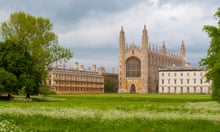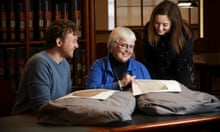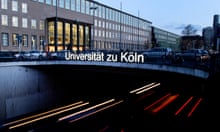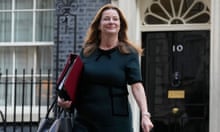The National Union of Students has failed to protect Jewish members and activists from hostile attacks within the organisation, according to an investigation that found “numerous instances” of antisemitism in the union over the last decade.
The independent investigation found multiple examples of Jewish students having been subjected to antisemitic bullying and ostracisation within the NUS because of their faith and their views on Israel, and that the NUS’s internal procedures had been inadequate or repeatedly ignored in dealing with their complaints.
The discrimination identified in the report included “the employing of ancient antisemitic tropes, from blood libels to Rothschild conspiracies”, as well as holding Jewish students responsible for acts of the Israeli state.
Rebecca Tuck, the independent investigator, said: “For at least the last decade, Jewish students have not felt welcome or included in NUS spaces or elected roles. There have been numerous instances of antisemitism within NUS.”
Tuck, a barrister and king’s counsel, was commissioned last year by the NUS to investigate allegations of institutional antisemitism, after mounting concerns of 20 former NUS presidents were revealed by the Guardian in April.
The NUS said it was working with the Union of Jewish Students (UJS) to develop an action plan in response to Tuck’s investigation, which it described as “thorough, fair and conducted to the highest standards”.
“The KC’s report is a detailed and shocking account of antisemitism within the student movement,” the NUS said. “It is a truly difficult read for all of us but we welcome the clarity it brings to enable us to act with confidence to tackle antisemitism head-on.
“There is no place for antisemitism within NUS and we are committed to ensuring that Jewish students feel safe and welcome in every corner of our movement.
“Antisemitism is an attack on our shared values of equality and solidarity. We have a proud history of fighting struggles alongside Jewish students. We must tackle antisemitism in all its forms with collective responsibility.”
Joel Rosen, the UJS president, said the report was “a searing indictment of anti-Jewish racism” within British student politics.
“It is vital that this report is translated into meaningful and immediate action … We now need to see a fundamental change within the NUS’s culture, and Jewish students will judge them on their actions,” Rosen said.
Tuck’s investigation interviewed Jewish student activists who reported cases of harassment within the NUS that amounted to “an intimidating, hostile, degrading, humiliating or offensive environment”, in violation of the 2010 Equality Act.
One told the investigation: “I never initially entered student politics to talk solely about Jewish issues, but my time in the movement became defined with defending Jewish students’ rights to even be in the room.”
Tuck said: “Numerous accounts have been given to me of students being identified as ‘a Jew’ then being treated as a pariah at NUS events – subject to rooms ‘going quiet’ when they walk in, conversations abruptly ceasing, being whispered about and stared at.”
The report does not mention the controversy that resulted in Shaima Dallali being forced out as NUS president in November, after Tuck’s inquiry found “significant breaches of NUS policies” and the NUS terminated her contract.
However, Tuck said she received “considerable assistance” from many NUS directors and leadership team members, and was optimistic that meaningful changes could be made.
“I have also found the current NUS UK board to be sincere in their expressed desire to ensure their organisation is welcoming for all students, including Jewish students,” Tuck said.
“Thoughtful and consistent efforts will now be required over a sustained period, and an acknowledgement that it will take time to build trust as it has been notable by its absence for many years.”
Tuck said her findings referring to current staff were contained in a separate, confidential report to the NUS’s directors.










